Choosing a good headphone for your studio is really tough. SO, I have come with this guide in which you’ll learn how to choose studio headphones.
Whether you are running a home studio or a professional one, some studio gears are common in both approaches. Headphones are one of them.
But when you hit enter on your keyboard after typing studio headphones, you get stuck. There are so many models and types to choose from.
Without prior knowledge of how to choose studio headphones, these Google results just create confusion in your mind.
Do you know, headphones are the most common gear in audio recording gears? And obviously, more common gear means more confusion on the internet.
Well, to save you from that kind of confusion, I’m here with this article.
In this article, you will read 9 quick tips on choosing studio headphones. After reading this article you can take a quick decision as that which headphone is really built for you.
So, let us begin.
Disclosure: This post may contain affiliate links, which means we may receive a commission if you click a link and purchase something that we recommended. Read more about Affiliate disclosure here.
Table of Contents
1. Type Of Operation (Mixing, Mastering or Monitoring)
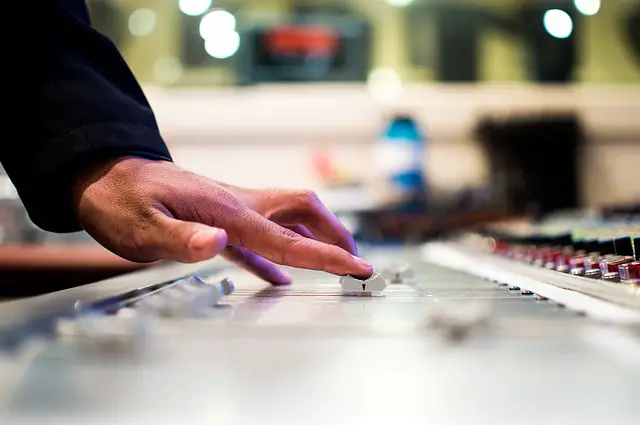
At the very first, you have to clarify this in your mind. Do you want a headphone dedicated to only mixing?
Or do you want a headphone that can be used for both mixing and monitoring purposes? Even there are headphones that are used only for mastering purposes or DJ operations. Quit confusing. Right?
Well, the 1st and most important step is identifying your work.
Some of us are mixing engineers who only mix projects, some of us are music producers cum mixing engineers, and some of us are all-rounders (Vocalist, Musician, music producer, mixing engineer).
Have you identified your type of operation?
Now, come to the 2nd tip.
2. Open-back, Closed-back or Semi-open
However, headphones are of many types, but when it comes to studio headphones, we have 3 choices to select from.
- Open Back headphone
- Closed back headphone
- Semi-open headphone
Let us gain some knowledge of what are these and for which purpose they are used.
Read this article to know more about Open back and closed-back headphones
Open back vs closed-back headphones: which are right for you?
Or watch this video
Open back headphones
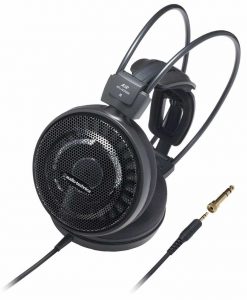
Open-back headphones have their backside fully open. This structure helps it to release the sound pressure generated inside the headphone enclosure.
These headphones are used for mixing purposes. The open backs release the sound pressure generates inside the enclosure hence there is no reflection inside. As a result. you get more accurate frequencies than other headphone types.
Note: There are many other factors that affect the frequencies. So don’t judge any headphones on the just open back feature.
Closed back headphones
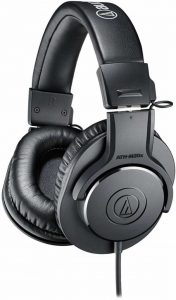
Just opposite to open-back headphones, the enclosure of closed-back is closed in this type. These headphones are used for monitoring purposes, especially for vocal monitoring by the vocalist.
The main advantage of these types of headphones is, there is less outside noise as compared to open-back headphones.
In vocal rooms, we use condenser mics which are very sensitive and easily catch the sound released by the open-back headphones. So in vocal rooms closed backs are an ideal headphone type.
But the disadvantage is, that due to internal reflections, you don’t get accurate frequencies. So “as per some music gurus,” closed-back is not ideal for mixing purposes.
This is partially right, but as I noted above there are many other things that decide the quality of the headphone, it’s not completely true that closed-backs are not ideal for mixing.
Even, I used Roland’s RH200 headphones for a long time in my early carrier for mixing purposes, and believe that headphones gave good results.
- Check out the Audio Technica ATH-M50xRT Review – Best multipurpose wireless headphone
Semi-open headphones
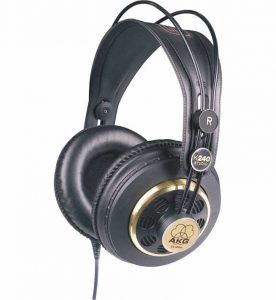
Semi-open headphones are my best type of headphones. The advantage of this type of headphone is, that you can use it for both mixing and monitoring purposes.
This type of headphones is partially open from the backside to release the extra sound pressure but is not as noisy as open-back headphones.
This feature makes it my 1st choice among others. Whether you are recording vocals or you want to mix projects this type of headphone is ideal for both operations.
The benefit is, that you don’t need separate headphones for both purposes. You can save money by choosing this type of headphones.
Want More Information on headphone type? Head over to our article
3. Accuracy
Whether you choose closed-back, open-back, or semi-open headphones, whether you mix with headphones or monitors, the end goal is a professional mix. And accuracy is the key to success in a mix.
Your mix quality depends on 2 things – your skill and your gears. Without gear that provides you with accurate frequencies, you can’t achieve a pro mix. No matter how skilled you are.
So, when choosing headphones for audio mixing or mastering, keep in mind how flat the frequency spectrum that headphone provides you. As flat as frequency spectrum as good as your mix.
4. Isolation
Isolation is the most important criteria for choosing studio headphones.
Isolation is another important thing you should consider before hitting the buy button for your studio headphone. Generally, studio headphones are isolated with foam on their driver.
This foam isolates the headphone sound from the outside noise as well as stops the headphone sound from leaking outside.
Isolation is an important thing in recording studios.
A well-isolated headphone stops the click tracks from leaking outside and capturing by the microphones, as well as stops the outside noise so that the musician or vocalist doesn’t distract by the noise.
In open-back headphones, the isolation works in one way, ie; it stops the outside noise from entering the headphone enclosure, hence open backs are good for mixing.
In closed-back headphones, isolation works in 2 ways. That means neither sound leaks out from the headphone nor outside noise comes into the headphone.
So, when buying headphones keep in mind that the headphone should be well isolated.
5. Comfort
You work for hours in your studio. Right? I just guessed it but in many cases it’s true. If you are a professional music producer then you have to spend a lot of time in front of the mixing console and your monitor.
So, comfort is as important as other things. If you don’t feel comfortable in a long sitting, you can’t handle the production workflow.
And in the case of headphones, it’s extremely important that you choose a comfortable one, or you could feel fatigued and discomfort during a long session.
Note: Open-back headphones are very comfortable because the pressure generates inside the driver enclosure gets out from the back and makes the sound more comfortable like listening to monitors.
Don’t use closed-back headphones in long sessions. If you are using closed-back headphones, take breaks between sessions.
6. Durability
Nobody wants gear that is not durable. You invest your hard money on those expansive gears. If the gear is not durable and long-lasting, you may lose your hard cash and your mind also.
There are 2 tips I want to give you on this topic.
- Choose a better brand
- Always go for tested headphones not newly launched (read customer reviews on shopping sites)
7. Connections
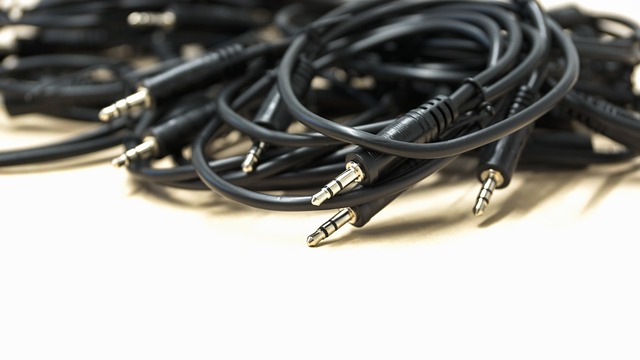
- Does your audio interface has 1/4″ phono out or 1/8″?
- Do you want to use your headphone inside the vocal booth?
These are some of the things you should consider in this section.
Let’s dig out more
- Wire length: Wire length is important if you are going to use your headphone apart from your mixing desk. However, for vocal rooms, you may use extension cables. But make sure your headphone wire length is as enough as it fits for most kinds of operations in your studio.
- Connector Type: Headphones generally come in two connector types. 1/4″ phono and 1/8″ phono. Most audio interfaces and headphone amps have 1/4″ connectors so make sure you get a 1/4″ connector or if not then the 1/8″ to 1/4″ adaptor along with the headphone.
- Durability: Here I once again want to talk about durability. Make sure the joints near the connector and the headphone is strong enough to get rid of shocks. A Phone receiver-style wire is recommended for extra durability of the wire.
I have a detailed guide on choosing studio monitor cables that you should read to learn more about the connector and wire types.
8. Low-Cost Vs High-Cost Headphones
- Out of cash?
Many of us start our 1st studio in the bedroom. And don’t have enough money to afford the costly gear. Even if we have, we don’t want to invest it in a business that is new.
Well, there are many low-cost studio headphones that exist on this planet to get a perfect mix or monitoring.
But, that means not that costly headphones are useless. Manufacturers make costly headphones because they have an X-factor which low costs do not have.
Choosing low-cost or costly studio headphones is your very personal decision. But keep in mind before going for low-cost or costly debates review them wisely by reviewing sites or customer reviews on shopping websites.
9. The Need Of Headphone Amps
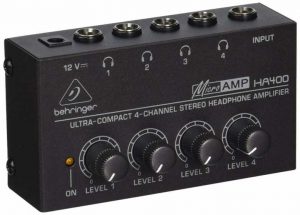
Generally, No.
Because your audio interface or mixer has a built-in amp for one or two headphone outs.
But if you have more than one headphone (and if your audio interface does not have more than one headphone out), and use them simultaneously then you must have headphone amplifiers in your studio.
Conclusion
Well, you just read 9 quick tips on how to choose studio headphones. I think this article cleared out most of your doubts.
Now it’s time to choose your headphone. Here are some top picks. Check out them.
- Audio-Technica ATH-M20x: Checkout on Amazon
- Sennheiser HD280PRO: Checkout on Amazon
- AKG K240STUDIO Semi-Open: Checkout on Amazon
Drop a comment if you have any queries or suggestions for other readers. Share this article with your social circle so that your friends could also watch this amazing and informative article.
Also, check out our other useful articles

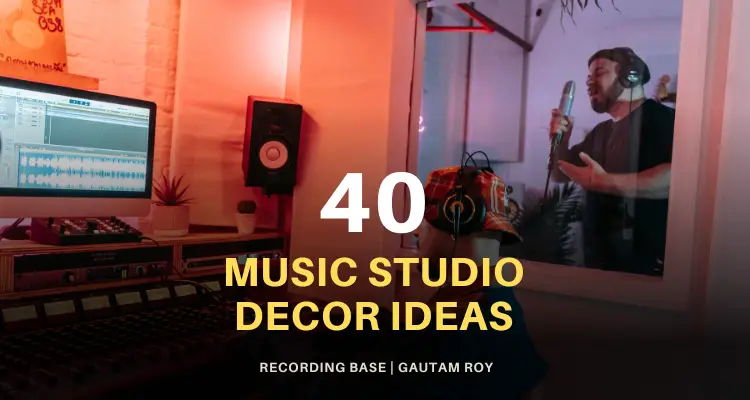
![Top 11 Best Mouse for Music Production in 2024 [Top Picks]](https://www.recordingbase.com/wp-content/uploads/2022/04/best-mouse-for-music-production-home-studios.png)
![Studio Monitor Cables Buying Guide [Top 10 in 2024]](https://www.recordingbase.com/wp-content/uploads/2021/11/Practice-Online-Now.png)
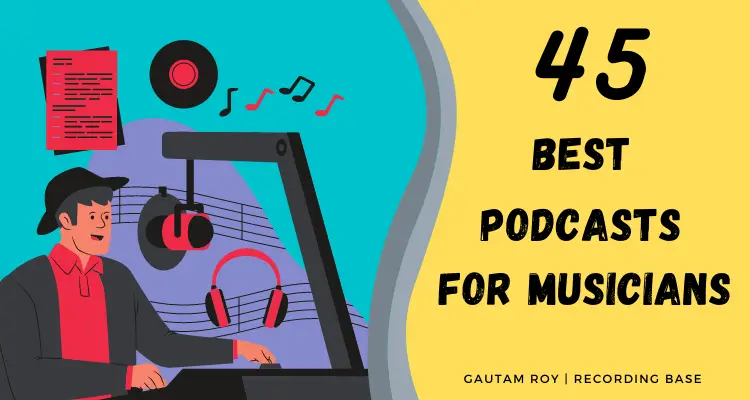


Thanks, this helped me understand a lot more about the differences and what to look out for. I also think there is a minor spelling mistake at the end of 1. in the paragraph “Some of us are mixing engineers…” but apart from that, great work!
Thanks Reid for the information. I’ll correct that paragraph.
Great!Thanks for the post
It will be very helpful if you write about wireless headphones